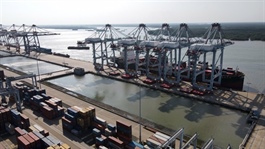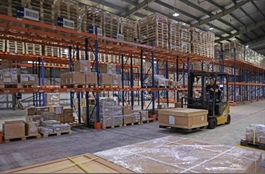Construction permit eradication warrants framework
Construction permit eradication warrants framework
The proposal to eliminate construction permits – expected to remove one of the most significant barriers for businesses – will only be truly effective if supported by a robust post-inspection mechanism, the digitisation of procedures, and a legal framework aligned with practical realities.
For many years, industry insiders said, the procedure for obtaining construction permits has been one of the greatest obstacles causing businesses to hesitate when implementing projects. This is not only about prolonged time and rising costs, but also about the lack of transparency and overlapping processes among various appraisal agencies.
According to Mai Huu Tin, chairman of the Binh Duong Business Federation, the requirement to obtain construction permits for each small project is the clearest evidence of the existence of the ‘ask-give’ mechanism.
“If planning and regulations are transparent, businesses can fully comply with standards without going through the complicated permitting process as they do now,” Tin told VIR.
Another real estate developer, Le Huu Nghia, director of Le Thanh Company, said that when implementing a real estate project, businesses have to go through too many rounds of planning appraisal.
“Until the step of preparing a feasibility study report, the authorities continue to review planning factors. When applying for a construction permit, businesses still have to prove compliance with planning once again. Not to mention, before implementing the project, businesses also have to post for public opinion on whether the land is suitable for planning,” Thanh claimed.
“Overlapping procedures and multiple layers of approval from different agencies cause project implementation progress to be prolonged, leading to significant waste of time and resources,” he added.
This situation does not only occur with real estate projects. Trinh Tien Dung, general director of engineering and manufacturing solutions provider group Dai Dung Corporation, said that obtaining a construction permit for a factory in an industrial park can take up to 18 months – longer than the actual construction time.
“During the waiting period for the permit, businesses have to bear financial costs, pressure on progress, and market risks,” Dung said.
At a government press conference on 4 June, Deputy Minister of Construction Nguyen Danh Huy informed about the roadmap for eliminating construction permits.
According to Huy, in recent times, the government has issued many resolutions and directives regarding administrative procedure reforms.
The Ministry of Construction (MoC) has coordinated with relevant authorities to strengthen the review, reduction, and simplification of administrative procedures in the construction sector. The MoC assigned its Department of Economics Construction Investment Management to take the lead in setting up a proposal to amend legal regulations, aiming to reduce construction permit procedures.
“The MoC will review all legal documents related to the construction sector, which stipulate permitting, and conduct evaluation and summarisation. We create maximum favourable conditions, but must also assess the impact of eliminating permits,” Huy said.
After that, the ministry will adjust, amend, and reduce procedures stipulated in the Construction Law, and all these contents will be completed within 2025.
“In the meantime, for areas with approved detailed planning at a 1/500 scale, or areas with approved urban design under the Architecture Law, permits can be immediately eliminated,” Huy added.
In addition to time and procedures, many businesses also face the burden of unofficial costs when applying for construction permits.
Bui Trang, country head of Cushman & Wakefield Vietnam, said that unclear approval criteria, inconsistent processes, and varying application and handling between localities cause businesses to submit documents multiple times, continuously adjust, and often face unjustified delays.
“The reality shows that obtaining a construction permit is not merely a technical procedure, but has become a significant obstacle in the development journey of businesses, while also slowing down the improvement of the investment environment,” Trang said. “Eliminating construction permits will create a strong impetus for the investment environment, especially in the real estate and industrial sectors.”
According to Trang, removing the construction permit process can help businesses significantly shorten project implementation time, reduce interest costs, increase capital turnover capacity, and improve business efficiency.
“More importantly, when there is no longer the ask-give procedure, businesses can be more proactive in selecting contractors, planning construction, and implementing projects. All activities will adhere to planning regulations and technical standards, instead of relying on the complex approval process as it is now,” Trang added.
- 09:52 20/06/2025



























